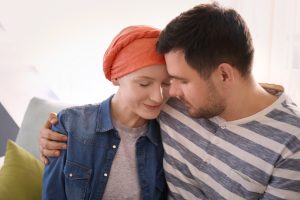Tag: Building Trust Essay Contest 2025 Winner
What We Hold and What We Share
There is no word for “gay” in Urdu.
As a child, I thought that this absence meant people like me did not exist, that queerness was something distant — something that belonged to another culture, another language. As I grew older, I more clearly grasped my community’s stance on the matter. My mother would remind me that my ties with the family would be severed if I did not marry a Muslim woman; my father told me he felt physically sick when gay marriage was legalized in the United States. In the rare instances when the topic of sexuality arose in prayer groups, I quietly gazed at the floor as my closest friends explained why they could never love a gay person.
It took me years to unlearn that silence — to find the words, to find others I could open up to, and to finally speak my truth aloud. In doing so, I came to understand trust not just as something given, but as something built, often across divides of experience, values, and generations.
As a medical student, I have learned to see trust in this way — not only as a bridge between two individuals but as the essential foundation of effective health care.
For the last two years, I have worked at the Seva Free Clinic, which provides healthcare to a predominantly South Asian patient population in Chicago’s Rogers Park neighborhood. The people we serve remind me of my parents, my uncles, and my cousins — people from cultures where respect and tradition are paramount, but where openness about personal struggles is less common. When I meet with patients, they often seem comforted to see someone who looks like them and speaks their language. But as a medical trainee, I have learned that trust must be earned through a more fundamental connection: through listening, empathy, and humility.
One patient had a particularly profound impact on me. “Salman” was a man in his late thirties who came to the clinic alone. In the exam room, he spoke to me in short sentences and with a guarded demeanor. His chief complaint was lower back pain, but his hesitations in answering my questions hinted at something more. It was only after I gave him space to speak and gently expressed a genuine interest in hearing his experience that we succeeded in forging a deeper connection.

After a long pause, he admitted that he had been taking Percocet since a spinal surgery that had taken place years prior. The prescription was no longer active, but his dependence on the medication persisted. He had tried to quit, but had failed. As our conversation progressed, he cautiously added: “You are the only person I have told.”
The weight of those words was not lost on me. I knew what it meant to hold a secret so tightly that it threatened to hollow you out. For me, coming out as gay was an act of trust that I had doled out carefully — first to friends, then to mentors, always bracing for the possibility that my faith in them might be misplaced. Yet, I also knew the profound relief that follows when vulnerability is met with understanding. In medicine, trust is built in small, deliberate actions. It is in the way we ask questions, the way we respond to difficult truths, and the way we show patients that their honesty will not be received with judgment but with care.
Building a connection with Salman did not cure his addiction, but it allowed him to share his burden and take the first step toward recovery. His trust in me also enabled us to place a referral for specialists who could begin to manage his care.
That moment in the clinic underscores a broader truth: as the landscape of health care continues to evolve, so too does the nature of medical professionalism. Today, the practice of medicine extends beyond technical expertise or a hierarchical doctor-patient relationship; instead, it thrives on honesty, patient-centered care, and collaboration.
For many patients I have met as a medical student, health care is not simply about receiving treatment; it is also about feeling heard, respected, and understood. This shift is especially vital in communities where cultural differences shape health beliefs and generational divides influence faith in providers. I strive to be a physician who embodies this vision of professionalism — one who builds trust through humility, listening, and respect. By combining empathy with expertise, I hope to provide care that honors both the vulnerabilities and values of those I serve.
Adil Hassan is a pseudonym used at the request of the author. The author is a third-year medical student.
Bridging Generations in Medicine: Trust and Professionalism in a Rural Town
As the highway lights faded behind me and the stars emerged over the open country, I drove west toward Mineral Wells, Texas, for my Family Medicine rotation. Coming from the bustling suburbs of Dallas, I had never lived in a small town, let alone cared for patients in one. I expected to gain clinical knowledge, but what I hadn’t anticipated was how deeply the experience would shape my understanding of trust and professionalism in medicine.
In a town where everyone knew each other, the traditional boundaries between physician and patient blurred. My first lesson in trust came when I realized that my patients weren’t just patients. They were my neighbors, the people I saw at the grocery store, the barista who made my morning coffee, and the family that invited me to dinner. Unlike in Dallas, where patients could easily switch doctors, here, continuity of care was a necessity, not a choice. This reality carried weight: every interaction, whether in the clinic or outside of it, contributed to the trust patients placed in their physicians.
One evening, after finishing clinic, I stepped outside my condo and met a couple living next door. When they learned I was the “student-doctor,” they eagerly shared their health concerns. I reminded them I was still in training, but they nodded as if my white coat alone gave me authority. Caught between my duty to educate and my responsibility to acknowledge my limitations, I carefully framed my responses, emphasizing that they should follow up with my attending physician. It was in that moment I realized professionalism wasn’t just about medical expertise, it was about transparency, humility, and knowing when to defer to others.

Another pivotal moment came when an elderly rancher walked into the clinic, complaining of worsening back pain. His symptoms – persistent pain radiating to his abdomen, unintended weight loss – raised red flags. A workup revealed an abdominal aortic aneurysm, a life-threatening condition requiring immediate vascular intervention. In Dallas, an urgent surgical referral would have been routine. But here, the nearest specialist was over fifty miles away. The patient hesitated. Who would care for his cattle if he went to the specialist? Would insurance cover an out-of-town visit? My preceptor spent extra time explaining the risks, balancing medical urgency with the patient’s practical concerns. It was a masterclass in patient-centered care: one that required not just clinical knowledge but also trust-building through communication, empathy, and shared decision-making.
Throughout my rotation, I saw how generational perspectives shaped the practice of medicine. My preceptor, a seasoned rural physician, navigated these challenges with skill, but he also acknowledged how professionalism in medicine was evolving. For older generations, professionalism often meant unquestioned authority. Physicians gave orders, and patients followed them. But today, trust is built differently. It requires collaboration, transparency, and acknowledging the limitations of our own knowledge. I saw this shift firsthand when a young mother hesitated to vaccinate her child due to misinformation she found online. Rather than dismiss her concerns, my preceptor engaged her in a dialogue, acknowledging her fears while providing evidence-based guidance. This wasn’t just a conversation about vaccines, it was about restoring trust in medicine itself.
During my final weekend in Mineral Wells, I attended the town’s holiday celebration, recognizing many familiar faces. The sense of belonging I felt wasn’t just a reflection of my time there, it was a testament to the trust we had built. I learned that professionalism isn’t a rigid set of rules. It’s a dynamic, evolving concept shaped by relationships, values, and the needs of the communities we serve. In a small town, a physician is more than a provider. They are a trusted leader, a guide, and, at times, a friend.
As I continue my medical training, I carry these lessons with me. Trust is not granted by a white coat; it is earned through authenticity, ethical decision-making, and a willingness to listen. In an era where generational shifts and societal changes challenge traditional notions of professionalism, I’ve come to see that the heart of medicine remains the same: a commitment to our patients, our colleagues, and the communities we serve.
Benjamin “Benji” Popokh is a fourth-year medical student at the University of Texas Southwestern Medical Center in Dallas, TX. He is applying to residency in Family Medicine, with a focus on rural primary care and obstetrics. Outside of health care, Benji is passionate about long-distance running, reading, writing, and playing guitar.
The Clay Heart
In a hospital where codes echoed louder than lullabies and healing came measured in milligrams, there was a boy who carried magic in his hands.
Eight years old, small for his age, a quiet hurricane with wide brown eyes and wrists wrapped in tape. He knew every nurse’s name and every beep’s rhythm. Illness had settled into his life like a long-term guest, but he rarely let it steal the joy from his playroom kingdom.
I met him during my rounds as a volunteer. His sister was there too. Healthy, lively, and loud in the way only siblings of the unwell know how to be, trying to fill the silences illness creates. He was the one I watched, however. Focused, gentle, and meticulous with his clay, like he was modeling something more meaningful than people realized.
One afternoon, as I handed him a fresh ball of green clay, he looked up and whispered, “I’m making something for Dr. R.”
Dr. R. The young physician with kind eyes and sneakers instead of clogs, who traded formality for ease, who listened instead of lectured, who made medicine feel less formulaic and more like a conversation. The one who didn’t speak to kids like they were glass.
The boy’s hands moved with care, sculpting not just a figure, but a thank-you.
“She’s fixing me soon,” he added, as if this was just another thing to look forward to, like recess. “So I wanna give her something in case I forget.”
I didn’t know then that surgery was scheduled for the next morning. I didn’t know that his gift wasn’t just a craft. It was his way of holding onto something familiar, in case things felt different after surgery.
The hospital’s pace leaves little room for sentiment. A passing nurse glanced at the clay figure and offered a quick, “That’s nice, sweetie,” before rushing off. He didn’t need applause, just someone to care that it was finished.
And I did.

So when he handed me the clay heart – small, uneven, and green – I understood what he was giving me.
Green. The color of growing things. Of hope. Of something lasting beyond the cold white walls that tried to shrink his world.
“Can you give it to her?” He asked, his voice barely louder than the IV drip beside him. “In case I forget after surgery.”
I found Dr. R between cases. She paused as I offered her the gift, still soft around the edges, literally and emotionally. For a moment, she said nothing. Then she nodded, closed her hand around it, and whispered, “I’ll keep it safe.”
The playroom was quiet the following day.
No laughter. No sister. No clay under fingernails. Just silence, and the heaviness that follows when hope leaves too quickly.
The surgery, I later learned, had complications. Not fatal but frightening. Enough to shake a team that had grown used to pediatric resilience. Enough to make Dr. R keep the clay heart in her coat pocket every day that week.
He returned days later, slower, thinner, his chest sewn up and his eyes tired. When he saw me, his smile bloomed like spring after a harsh winter.
“Did she like it?” he asked.
I told him the truth: “She kept it.”
And I didn’t say the rest. That sometimes the smallest gifts are the ones that root themselves in people.
Trust is often discussed in medicine as something earned through skill, degrees, and exactness. Yet in that room, in that moment, it was built through something softer: presence. Honor. Listening when a child says, “This matters.”
It also made me reflect on how professionalism is evolving from rigid formality to presence, empathy, and emotional fluency.
Medicine once demanded distance, reserve, polished shoes, and practiced hands. But the children I met did not care how many white coats you owned. They cared if you remembered their favorite color. If you sat cross-legged on a tile floor to help shape a piece of their heart.
That moment reshaped how I define showing up in health care, not just physically, but emotionally, fully, and without ego.
That day, I learned that healing does not always come in cures. Sometimes, it’s the recognition that even in a sterile room of rules and protocols, a child can offer a gift not just of clay but of trust. I will carry that lesson with me.
And sometimes, the most professional thing you can do is kneel down, take it, and never let it go.
Brittany Ezenwa is an incoming medical student at the University of Texas Medical Branch John Sealy School of Medicine who is committed to uplifting underserved communities by promoting health literacy, fostering mentorship, and advocating for equitable access to care. She enjoys mentoring aspiring premed students, volunteering locally, and using social media to make the path to medicine more accessible. Outside of medicine, Brittany finds joy in cooking, fitness, photography, and exploring different cultures.
The Weight of Words
Some words are heavier than others.
Words like ‘cancer,’ ‘surgery,’ or ‘coma.’ They are the words that make everything else blur into a haze. On my internal medicine rotation, one particular word shattered and shaped the rest of someone’s life.
Hospice.
It was just seven letters typed into a chart, but for her husband, it wasn’t just a word. It was a verdict. A death sentence. A thief who snatched away any remaining hope without his permission. His voice erupted down the hospital hallway as we made our way through rounds. His grief was so raw and his anger so fierce that the walls seemed to shake.
His wife was only 53, locked in a losing battle with metastatic pancreatic cancer. After four weeks of procedures, we were running out of options. The interventional radiology team had placed several internal-external biliary drains, our last effort to control the cancer. Days later, she went into septic shock. With her oncologist on board, the team recommended hospice.
“How dare you give up on her? How dare you write that in her note? Now no one else will try,” he shouted. The air thickened.
“When did medicine start abandoning people when things get hard?” For some, especially those who grew up believing medicine must always fight, the idea of comfort care feels synonymous with surrender. This perspective isn’t uncommon. For decades, the medical profession’s focus has been on prolonging life at all costs. However, conversations about end-of-life care have shifted. Prioritization of dignity and comfort over futile intervention has become increasingly seen as a form of compassionate, patient-centered care.
“We will come by shortly and talk in private,” the physician said calmly. But the husband wasn’t ready. He stormed away, consumed by anguish.
Later that day, I found him sitting by her as she slept, peeling the skin off his knuckles. I pulled up a seat next to him.
“Can you tell me about her?” I asked.
He sighed, his face softening. “She’s my best friend. We met in college, and I knew right away I never wanted to let her go. She’s hilarious, and she makes this cute squeaky sound at the end of her laugh. She’s ridiculously smart and so curious about the world. She loves photography, especially of plants.” His voice broke.

“I don’t know who I am without her,” he said tearfully. “She’s my best friend.”
I nodded. “She sounds wonderful. I can’t begin to imagine how you’re feeling.”
I visited him daily. Once after morning rounds, and again in the afternoon. Some days he wanted to ask exactly what a ‘bilirubin’ was, others were him showing me photos to relive a memory. I listened without steering the conversations. Slowly, he began asking more about hospice, though he’d always add, “I’m just asking. That’s all.”
When the palliative care team arrived, they took the time to meet him and explain their role. They spoke about comfort, about dignity, about how hospice didn’t mean giving up, but choosing how she would spend her remaining time. They answered his questions and addressed his fears. Some days he stormed out, others he lingered a little longer to hear them. Their patience reminded me that professionalism doesn’t demand immediate agreement but allows space for uncertainty. Over time, his uncertainty stopped consuming him.
When he began to listen instead of walking away, I felt his grief change from anger, to fear, to something that resembled trust and acceptance. It was no longer the team versus him. He saw that we were on the same side.
I will never forget the anger in his voice that morning. In that moment, the mechanisms of disease and memorizing treatment protocols no longer mattered. I used to think professionalism was about knowing the answers. But I now understand it’s just as much about standing with patients and their loved ones in their darkest moments. It is about being steady in the storm of others’ pain. It is about having the courage to hold someone’s suffering alongside them.
Some things, as doctors, we cannot fix. But trust is an exception. It is earned by remaining present, even when the bridge gets shaky. As a student, I didn’t need to make any grand gestures. I simply needed to stay.
We can ask, “Can you tell me about her?” And then, we can listen. Because while some words are heavier than others, trust has a weight of its own that can be powerful enough to help carry people through.
Rana Barghout is a third-year medical student at Weill Cornell Medicine. She earned her bachelor’s degree in neuroscience from Amherst College. She is passionate about improving care for vulnerable populations and advancing health equity. In her free time, she enjoys stand-up comedy shows, escape rooms, and exploring New York City.

